Falkland Islands frozen trawlers are preparing to head south.
Release time:
2024-11-20
Source:
The latest member of the Falkland Islands fleet was launched at the Aemon shipyard in Vigo and is expected to head to the South Atlantic before the first squid season next year.
The latest member of the Falkland Islands fleet was launched at the Emon shipyard in Vigo and is expected to head to the South Atlantic before next year's first squid season.
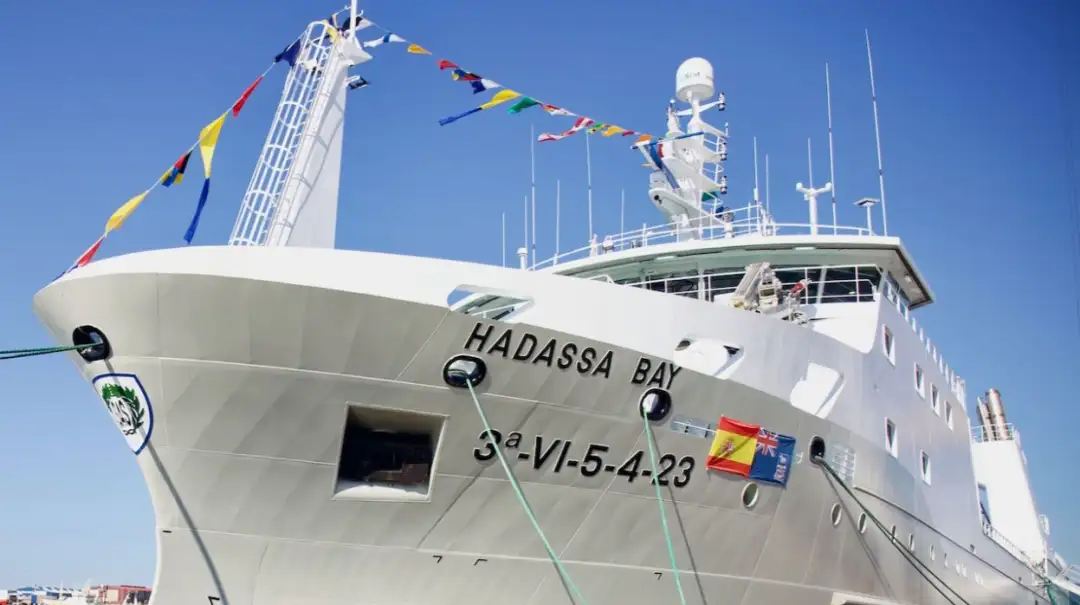
Hadassa Bay is built for South Atlantic Squid, a joint venture between Vigo operator Copemar and Falkland Islands Beauchene Fishing Company. In 2020, Baffin Bay completely disappeared after a fire on deck during its time in Vigo, and now Hadassa Bay is the replacement for Baffin Bay.
Hadassa Bay is named after the William Port Bay outside Stanley in the Falkland Islands, measuring 75.05 meters in length and 15.20 meters in width.
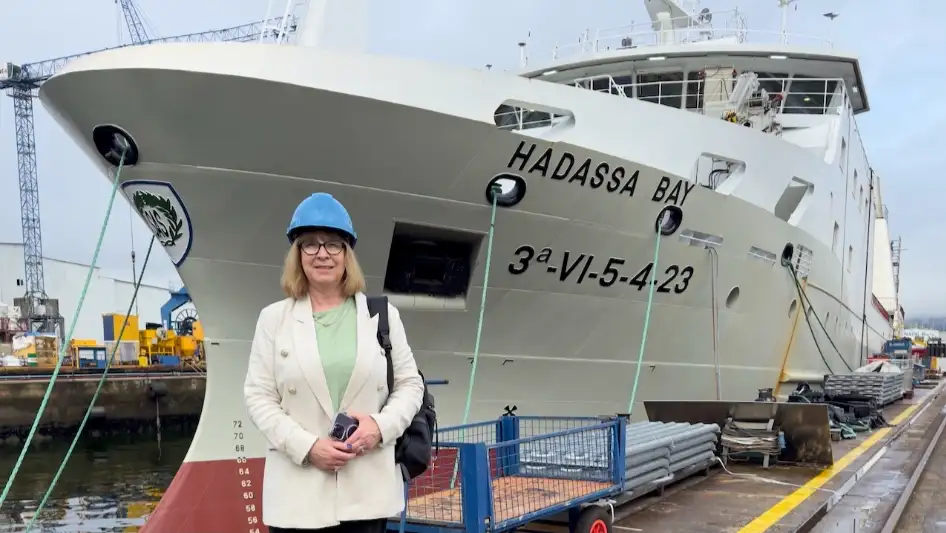
According to Cheryl Roberts, Managing Director of the South Atlantic Squid Company, Hadassa Bay is expected to sail to the South Atlantic in January.
According to Santiago Martín, director of Astilleros Vigo, the beam of this type of trawler is wider than usual, allowing the wheelhouse to be placed at a higher position, providing excellent visibility. "Considering the supply situation in the Falkland Islands, this also allows for a larger fuel capacity," he said, adding that the decision to place the trawl winch above the main deck keeps the main trawl deck clean, aids safety on board, and provides a clear view of deck operations without the need for CCTV coverage of hard-to-see areas.
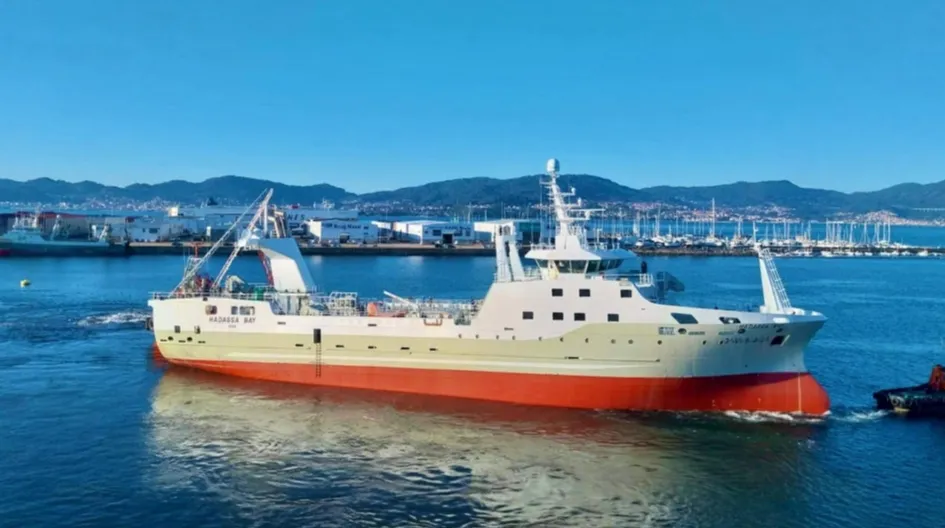
Hadassa Bay replaces Baffin Bay, which completely disappeared after a fire on board in 2020.
With a handover ceremony and celebration taking place at the shipyard in Vigo in late October, there are still some final fittings to be completed, but there are a few months until the next squid season begins. "Hadassa Bay may set sail for the Falkland Islands in early January. We haven't set a date yet, but we are considering early January, and then she can conduct sea trials to ensure everything is in order," said Cheryl Roberts, Managing Director of Beauchene, during the handover.

Hadassa Bay is the first new build from CR1–Astilleros Ría de Vigo-Armon shipyard, serving as the primer for new ships from Armon shipyard.
The biomass of the Falkland Islands gun squid is at least 10,000 tons per season for two fishing seasons. Before the start of this year's second fishing season, the biomass was far below this level, leading the fisheries authority to automatically close the fishing grounds, marking the first cancellation of a fishing season. If everything goes well in the next fishing season, the directors of SAAS look forward to a successful first fishing season for Hadassa Bay and at least 25 years of operation for their new trawler. The company's long-term considerations include outfitting to ensure the new vessel fully complies with ILO 188, the Torremolinos Protocol, and other international requirements.
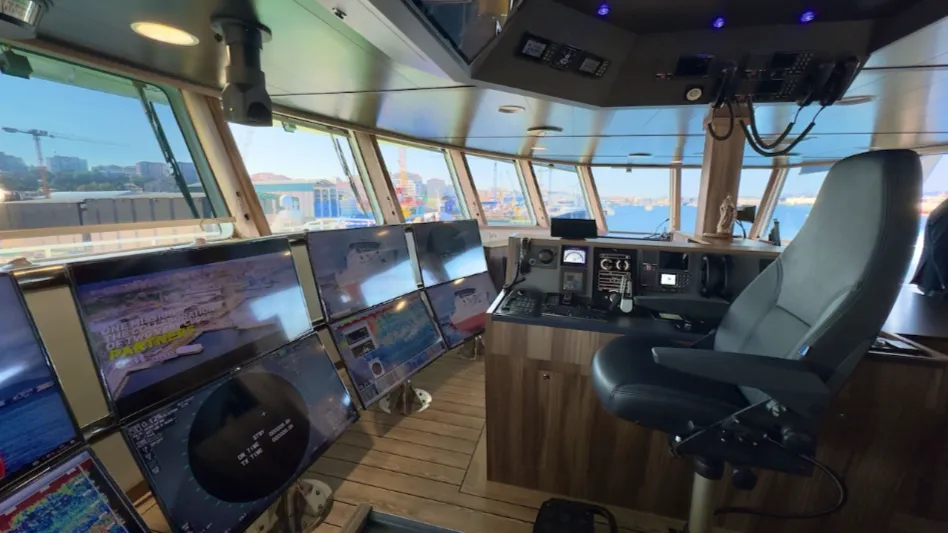
The control position in the wheelhouse of Hadassa Bay.
"Our view is that this vessel must be well maintained to ensure the long-term interests of all parties involved. We do not want to be taken out of the water more than necessary. We have A and W licenses, which also include licenses for finfish. Of course, because her flag state is Spain, this gives us an advantage in terms of import tariffs for goods into Europe," she said. Another feature of Hadassa Bay is the CR1 shipyard number, which stands for Construcción de la Ría de Vigo 1. This is the first new vessel delivered by Astilleros Ría de Vigo-Armón, located in Vigo, formerly the HJ Barreras shipyard, which was recently taken over by Armón. The additional space and facilities provided by this shipyard, adjacent to the existing Armón plant in Vigo (formerly the Santodomingo shipyard), offer many new opportunities for building fishing vessels and other ships in Vigo. On the other hand, Cheryl Roberts is pleased, believing that the classification of CR1 represents her initials.
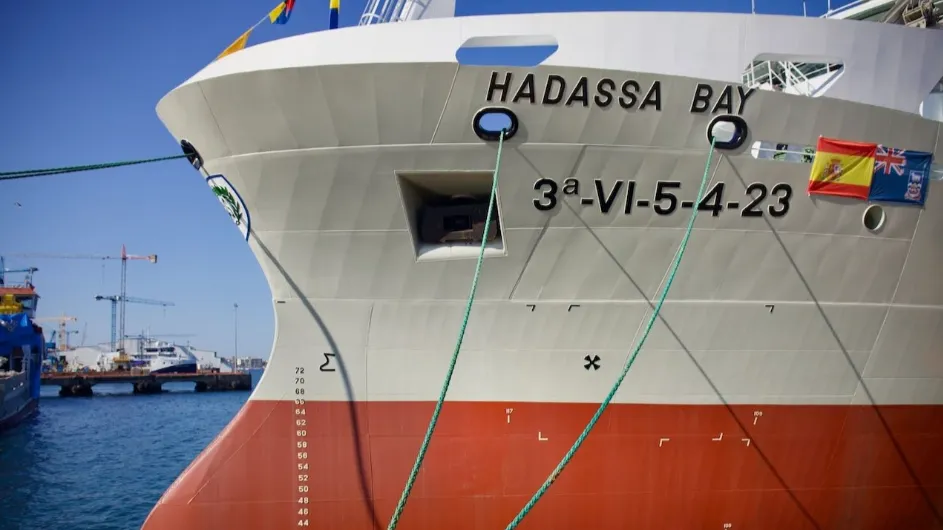
Vigo's registration provides advantages for production tariffs for goods heading to the EU.
The vessel can accommodate up to 68 people, primarily in twin-bedded cabins. Several cabins have three bunk beds, and one at the bow has four. Typically, two scientific observers are carried, but up to four can be accommodated. If there are male and female observers on board, there are Jack-and-Jill bathroom facilities between the cabins, with doors that can be locked from the inside.
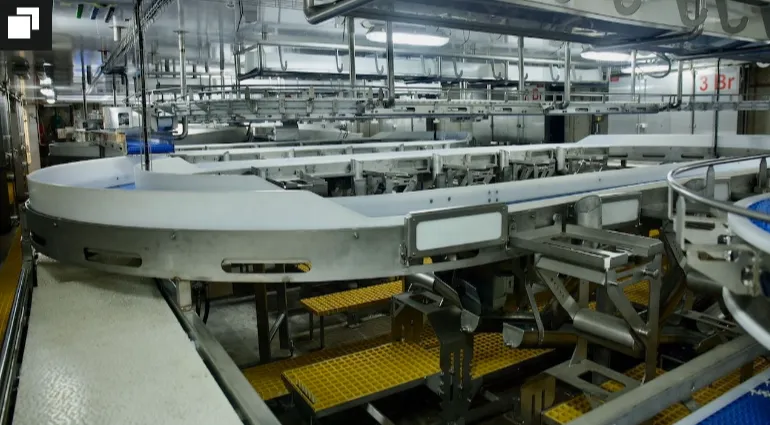
The caught squid is hand-sorted on a semi-automatic processing platform.
The semi-automatic factory deck of Hadassa Bay is equipped by the Vigo company Josmar. The squid catch is hand-sorted, with a throughput capacity of 100 tons per day from 14 blast freezers.
Kinarca provided four Mycom 200 compressors for the ammonia-based refrigeration system for the factory deck and 2250m3 fish hold.
The main engine is a 3164kW ABC 6DL36, driving a 4200mm diameter Berg propeller through a Reintjes LAF 5675 reverse gearbox with a built-in clutch.
The generator set is also from ABC, a 2500kW 12DZC unit coupled with a Leroy Somer LSA 54-110 AC generator. The emergency generator set is a 349kW Volvo Penta D13-MG, equipped with a Stamford S5L1MD4-1 AC generator.
Previous article
Other dynamics
NODOSA has done it again – the ARGOS BERBÉS ship is ready for the Falkland Islands.
Nodosa Shipyard has successfully completed the Argos Berbés, an 85-meter frozen trawler ordered by Orion Fishing, which is headquartered in Vig. Orion Fishing is a joint venture between Grupo Pereira and Argos Group in the Falkland Islands.
The Golden Age of Fisheries Research Vessels
The Galician Group of the Spanish Marine Factory is most prominent in building different types of vessels, but in recent years, this group has specialized in fishing research vessels.
Falkland Islands frozen trawlers are preparing to head south.
The latest member of the Falkland Islands fleet was launched at the Aemon shipyard in Vigo and is expected to head to the South Atlantic before the first squid season next year.
Squid Fishing: The Harvest of the Ocean and the Sustenance of Life
Squid, as a delicious seafood, is loved by people all over the world. Catching squid from the vast ocean not only provides a rich food resource for people but also becomes an important economic source for many coastal communities.
Tuna is a precious marine fish that is highly favored for its delicious meat, which is rich in protein and nutrients. In the global fishing industry, tuna fishing holds an important position.
Offshore fishing mechanized operations
Deep-sea fishing has always been an important component of the fishing industry. With advancements in technology, mechanized operations have gradually become a key transformation direction in this field.


